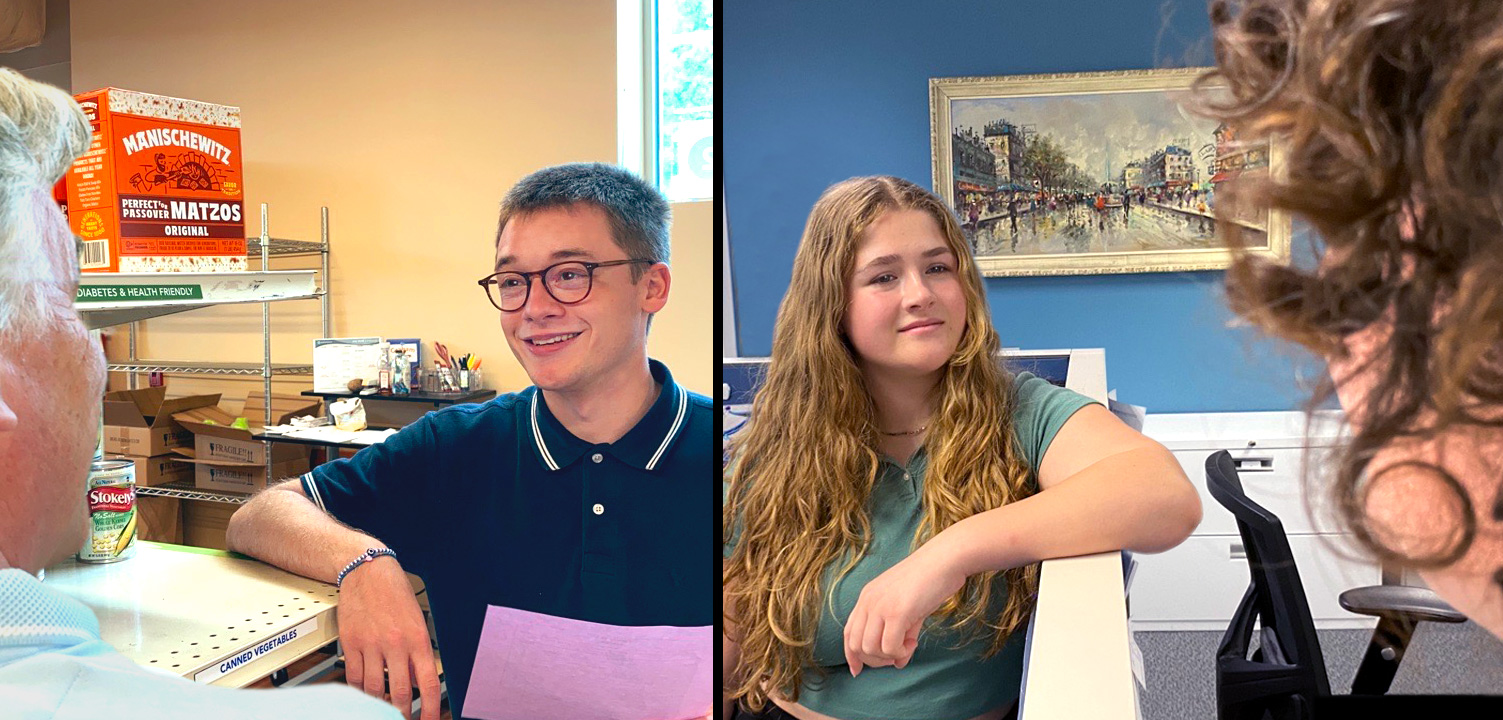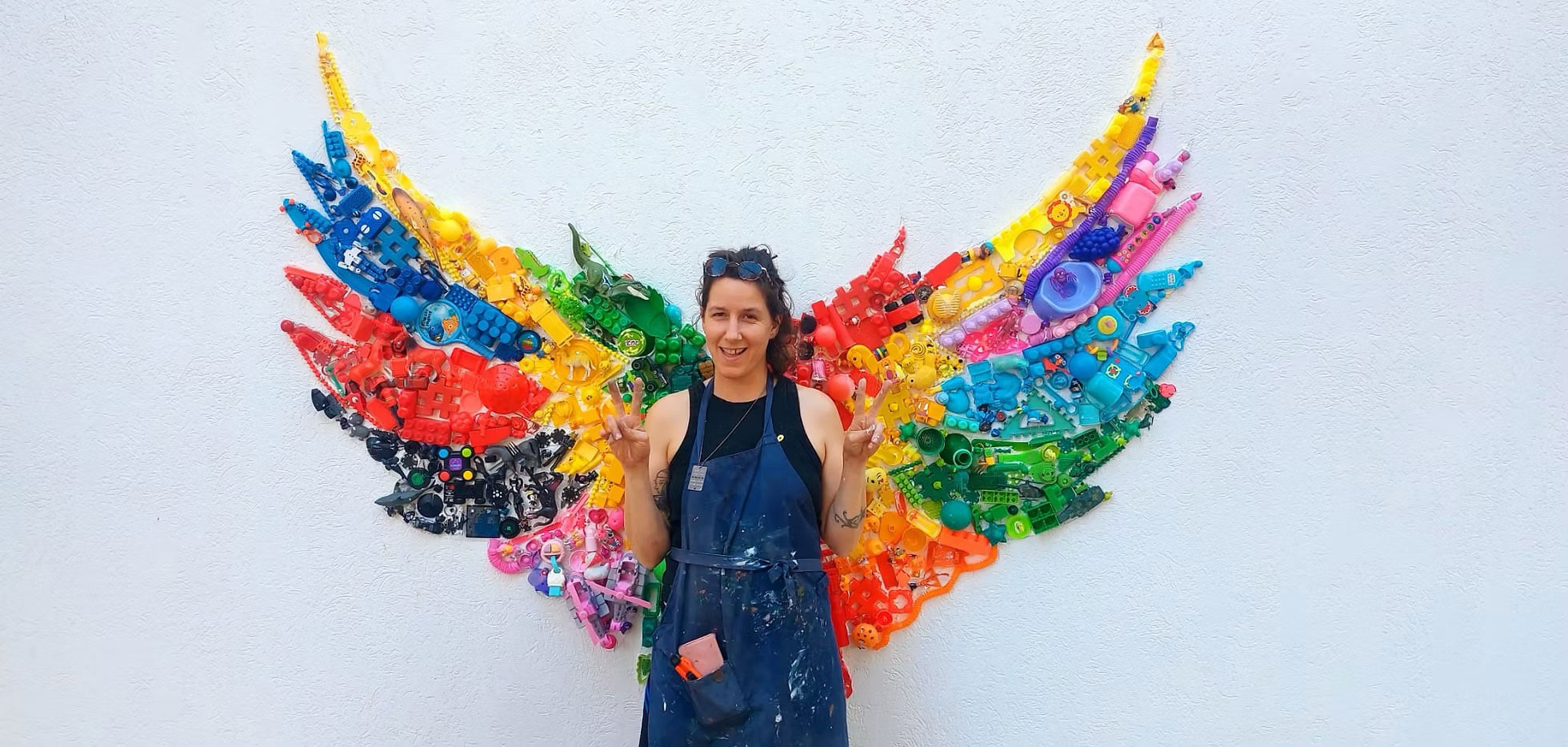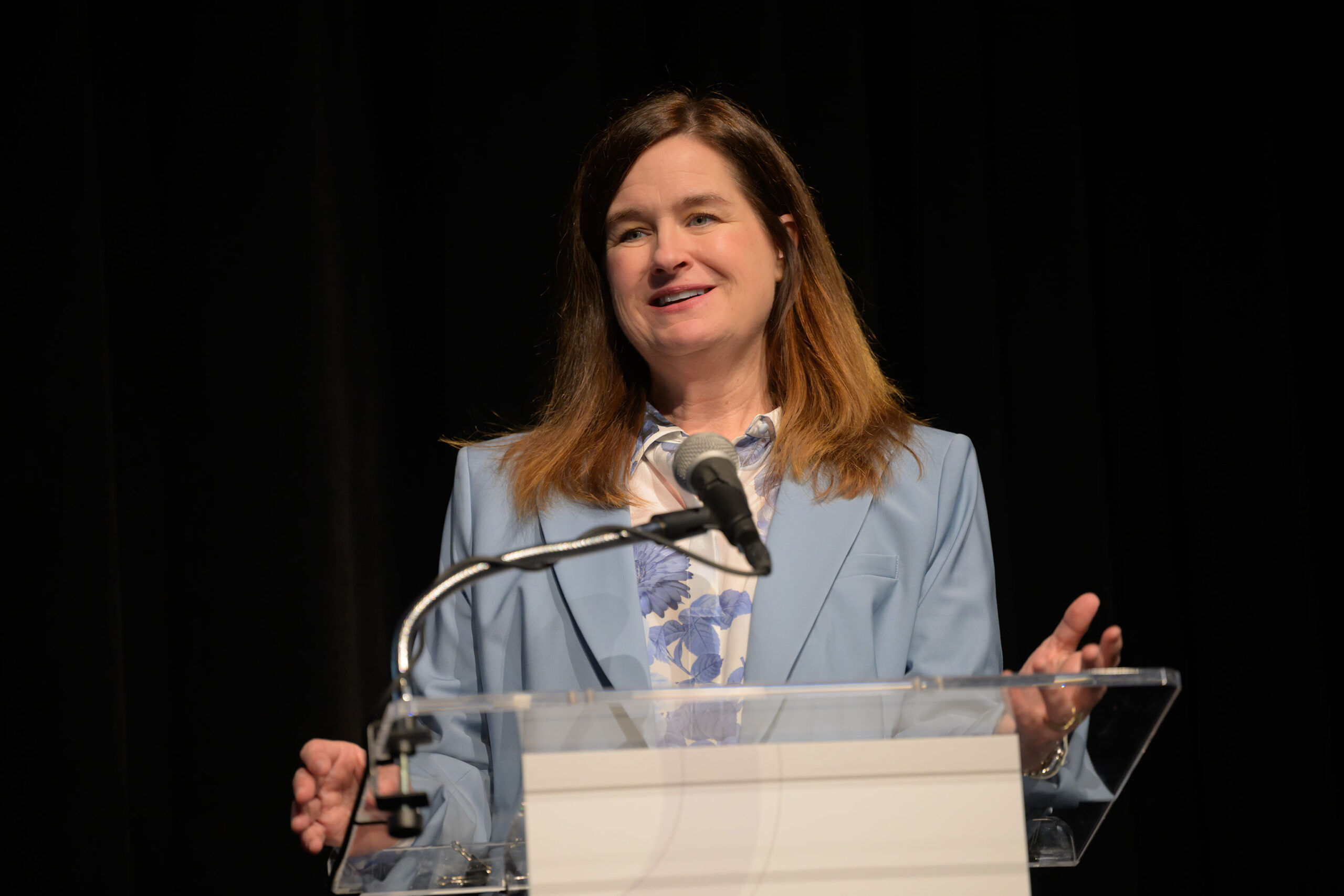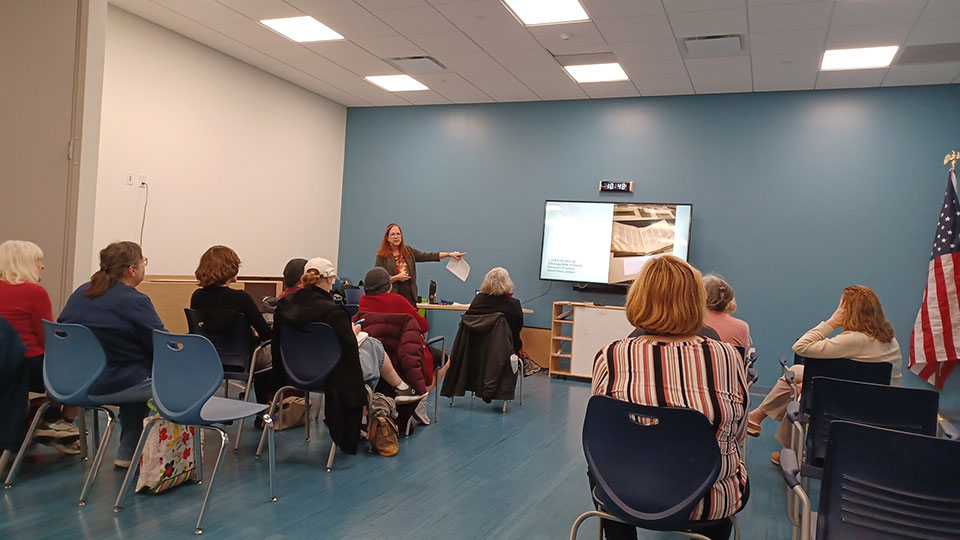For the past 11 months, Mattis Gunter (center left) and Neele Ehlers (center right) have been the Action Reconciliation Service for Peace (ARSP) volunteers for Jewish Family Service, working to support Holocaust survivors and provide food assistance to the Jewish community
Submitted by Jewish Family Service of Cincinnati
“I learned about the Shoah [the Holocaust] at a very young age. I can’t even remember the first time I heard about it,” said 19-year-old Neele Ehlers, who grew up in Cottbus, Germany — a town about 12 miles from the eastern border with Poland. “The Shoah is so ingrained in our education, but it’s something that’s very heavy and hard to deal with — especially when I think about how the people that did this were my ancestors.”
Though Mattis Gunter, 20, lives far from Cottbus, in Freiburg im Breisgau — a German city near the French border in the southwest — his education covered the same themes as Neele’s, evidence that Germany’s role in the Holocaust led it to become a resolute educator on the subject. “We started learning about the Shoah around sixth or seventh grade and maybe even earlier,” Mattis said. “I read a lot of books about it, especially when it came to high school where we were even more focused on the topic.”
Since last September, Mattis and Neele have been volunteering with Jewish Family Service of Cincinnati (JFS) as representatives from the Action Reconciliation Service for Peace (ARSP). Following World War II, a slow reckoning began in Germany to address the unhealable wounds of Nazism — not only for the victims of the regime’s atrocities but for the German people themselves. One form of this reckoning began in 1958 when ARSP was founded by the Evangelical Church in Germany. Focusing its initial efforts in Europe, ARSP was established to set an example for “remembrance, solidarity, and peace through voluntary commitment and international cooperation.” In 1968, the first contingent of volunteers came to the US, where roughly half the world’s Jewish population lived. In 2005, JFS accepted its first ARSP volunteer, and this year, for the first time, two individuals were welcomed: Mattis and Neele.
Through ARSP, Mattis and Neele’s Holocaust education not only continued, it was amplified. “We went to two different concentration camps in preparation for this year,” Mattis said. “Both of these camps were in Poland. One was Majdanek in Lublin, and the other was Belzec near a village called Belzec. That was terrifying to see, of course, but it was really important for us to get an insight into all the suffering. It wasn’t easy or pleasant, but it was extremely informative.”
Now in Cincinnati, Neele and Mattis have different roles with JFS, though the goals of their work are ultimately the same: building relationships and fostering goodwill. Neele works directly with area Holocaust survivors, while Mattis provides food assistance for Jewish Cincinnati through his work at JFS’s Heldman Family Food Pantry.
“I think this work is really meaningful because I’m able to help people who are struggling financially or who don’t have enough food at home,” Mattis said. “These people don’t have much, so naturally, I feel a sense of gratitude for what I have — and a strong desire to give back. It’s just a tiny bit, but by helping people here in Cincinnati’s Jewish community get access to some food, I feel I’m working for a more peaceful world.”
Tracy Wilking, Manager of JFS’s Heldman Family Food Pantry, emphasized Mattis’s strong desire to give back. “Service is a value that has been passed down in Mattis’s family, where he’s not the first to serve as an ARSP volunteer,” she noted. “And he brings all of that strong family experience to bear — in everything he does for the community. Through simple everyday interactions, Mattis has left a lasting impression on so many of our clients. Whether he’s out making deliveries or helping people shop for their groceries, his humility and compassion shine through.”
Neele’s assignments include making personal visits to the homes of local Holocaust survivors. “I visit with about four or five people every week,” she said. “We either talk or play chess or both. Sometimes I run errands or take a client to the doctor.” Thinking back to when she first started almost a year ago, Neele shared her trepidation about whether people would open up to her. “I was thinking it would take far longer before we had serious discussions. But after meeting people one or two times, most felt comfortable sharing a lot about themselves. I got to know them on a much deeper level. Trusting me with that information from their personal life and with their experiences during the Holocaust — it’s meant so much to me.”
Meredith Davis — the Senior Director of JFS’s Center for Holocaust Survivors — is thrilled to have Neele working at JFS. “Neele takes her work assignments very seriously,” Davis said, “but she adds a creative perspective that is deeply appreciated by both her coworkers and the clients of the Center for Holocaust Survivors. Neele has also really grown as an advocate; she listens carefully to our clients and helps them navigate the complexities of aging in this modern world, ensuring that their voices are heard.”
As they prepare to move on and return home, Mattis and Neele have thought a lot about what the ARSP experience with JFS of Cincinnati has meant to them. “I’d never been in touch with the Jewish community in Germany,” Mattis said. “Here I really got to know the Jewish culture, and I’ll be able to go back home and explain it to people and bring it closer to them. Obviously, it’s extremely beneficial to try to understand different people, different cultures, and different religions.”
“I gained a much deeper understanding of Jewish and German history,” Neele said. “Being here really caused my perspective to change because now I know the personal stories. I’m just thankful that people trust me and that they’re not angry with me just because I’m German. They appreciate that I’m interested and that I want to listen to them and that I care.”





